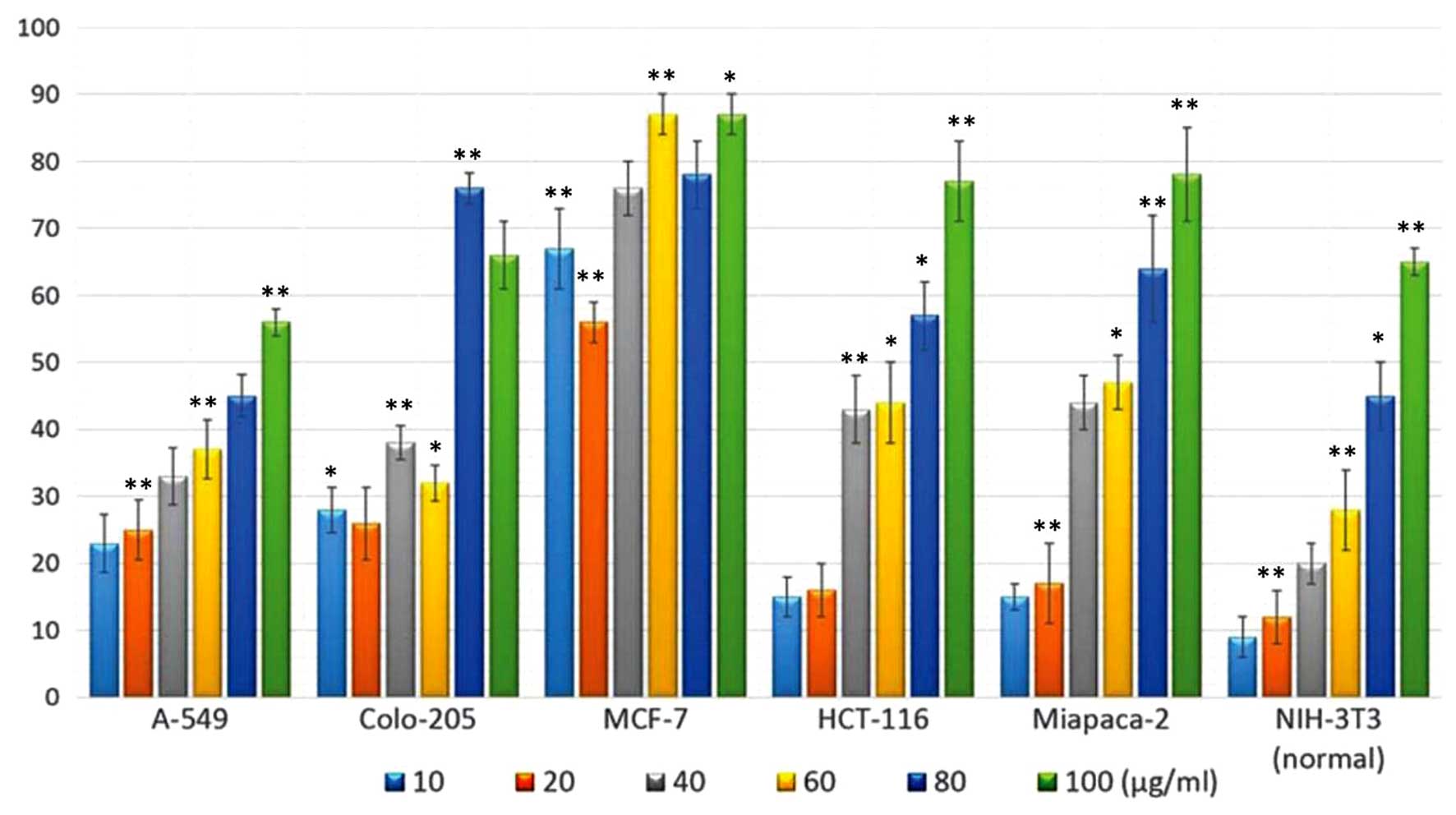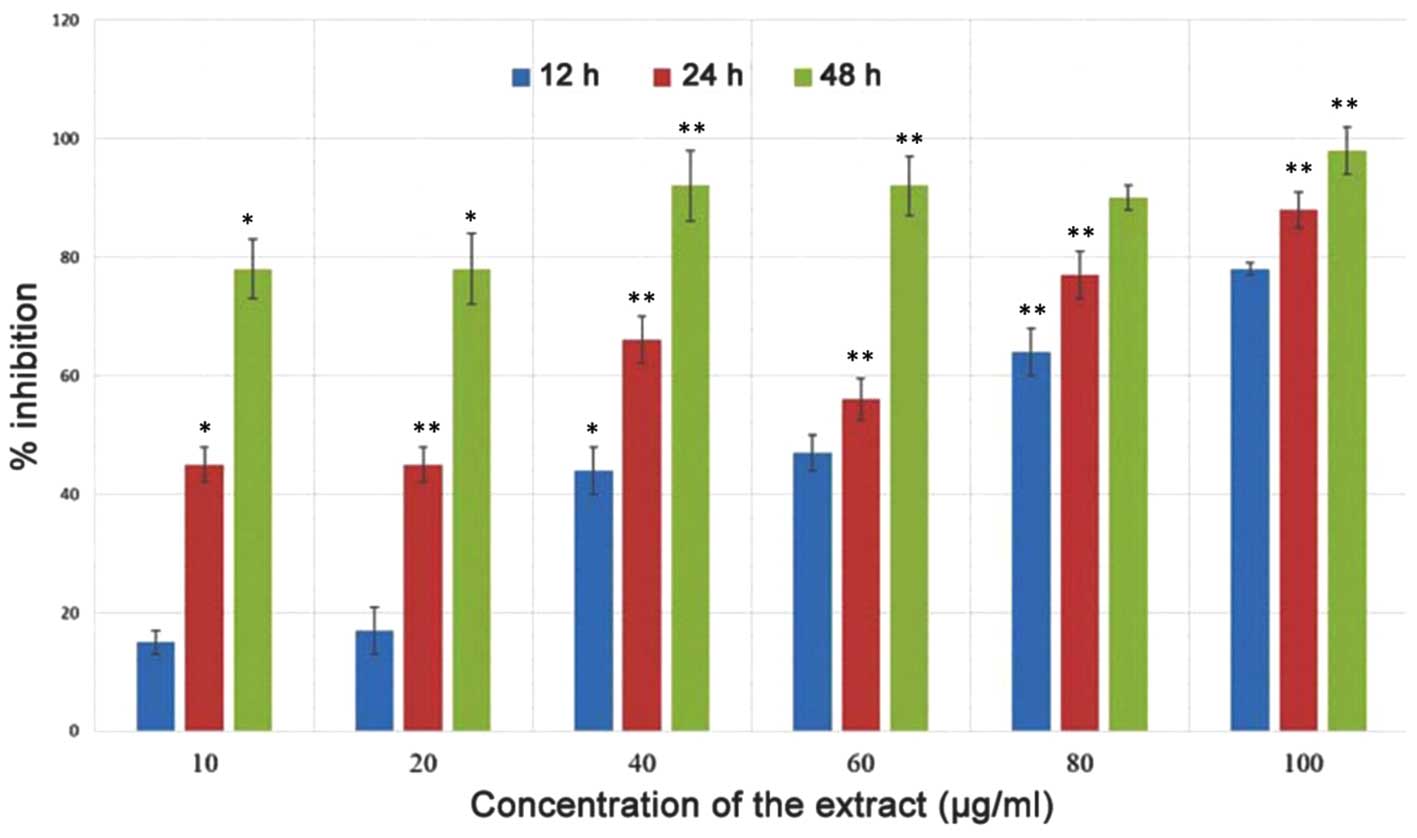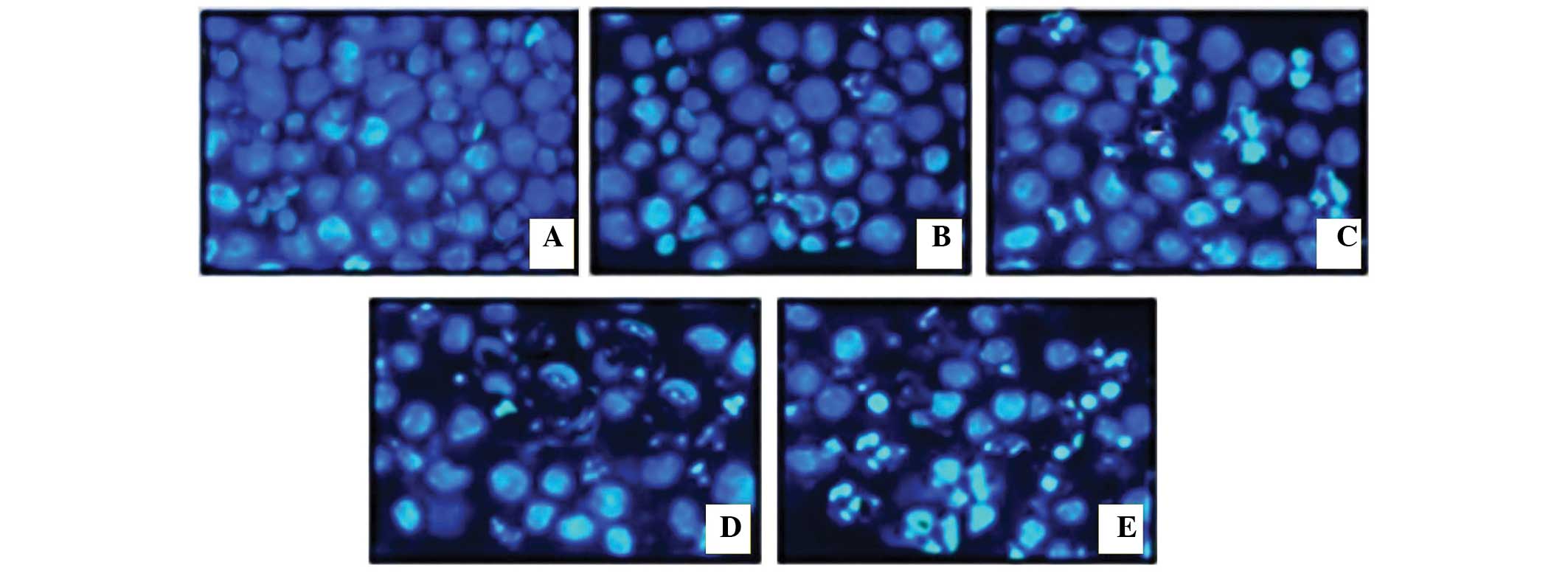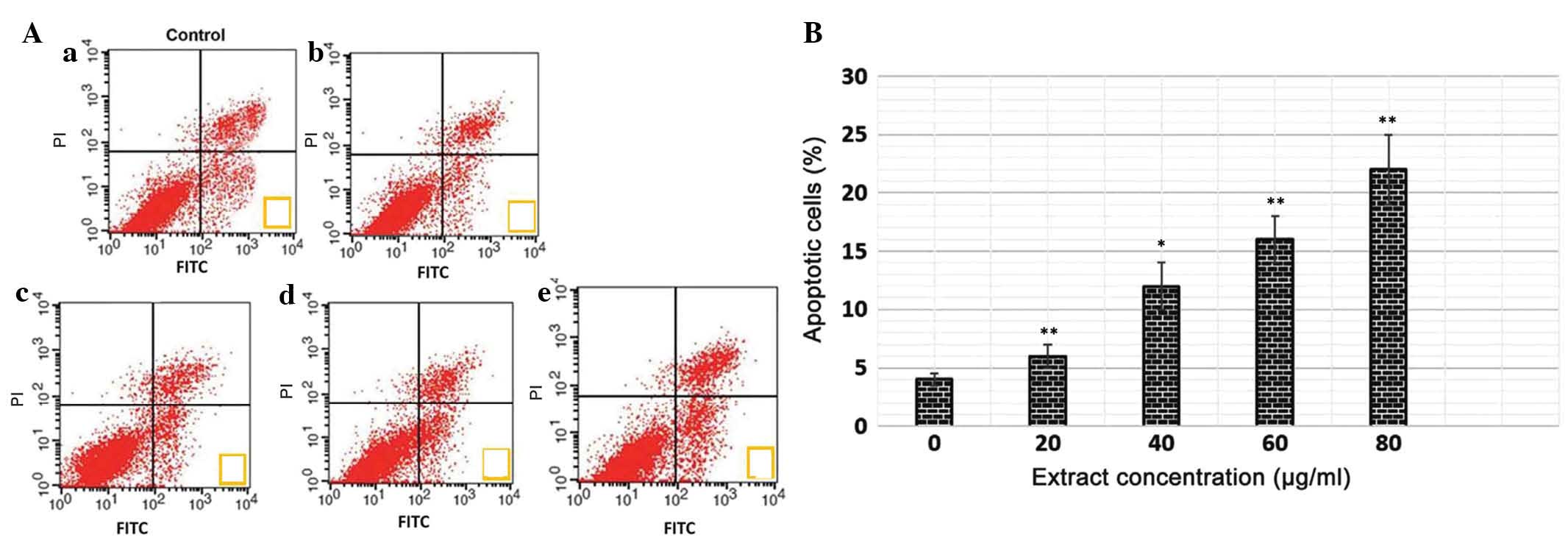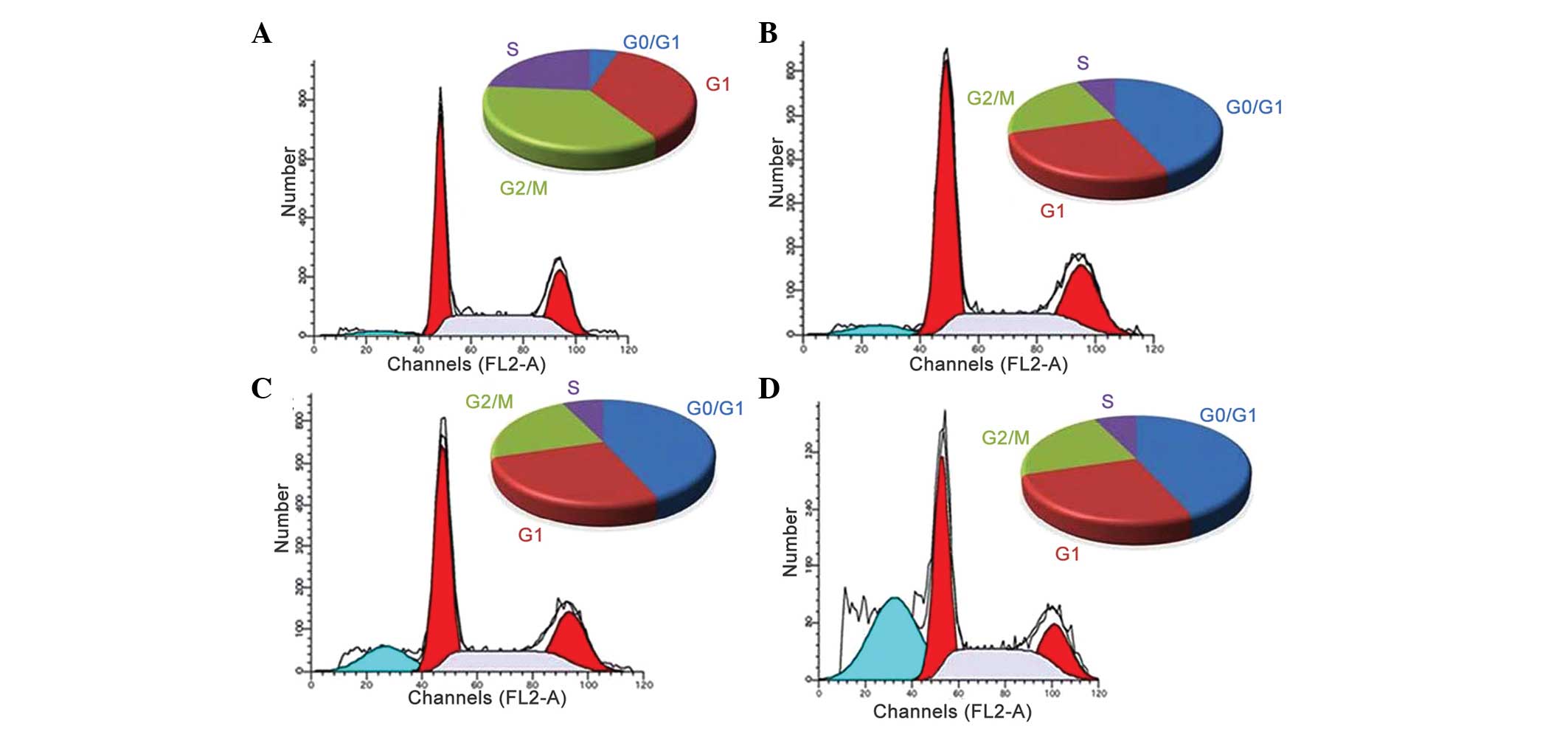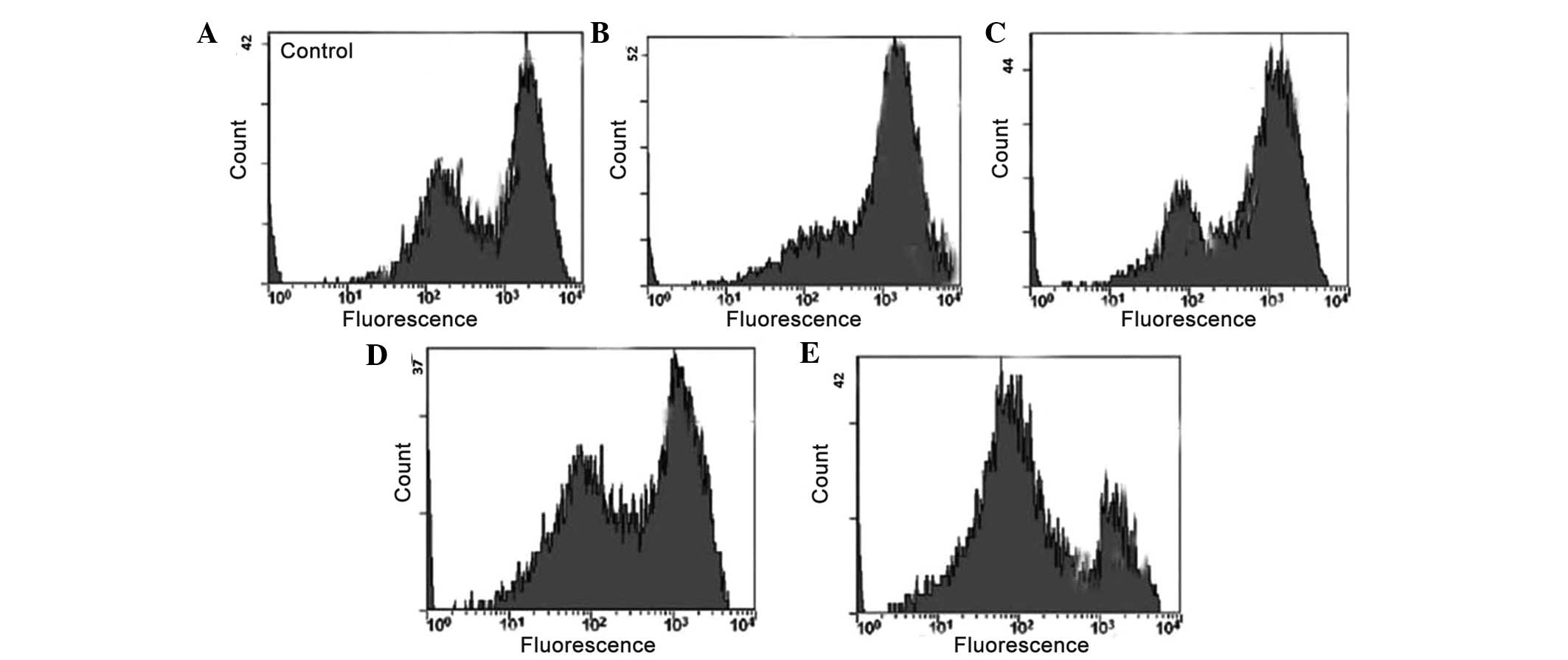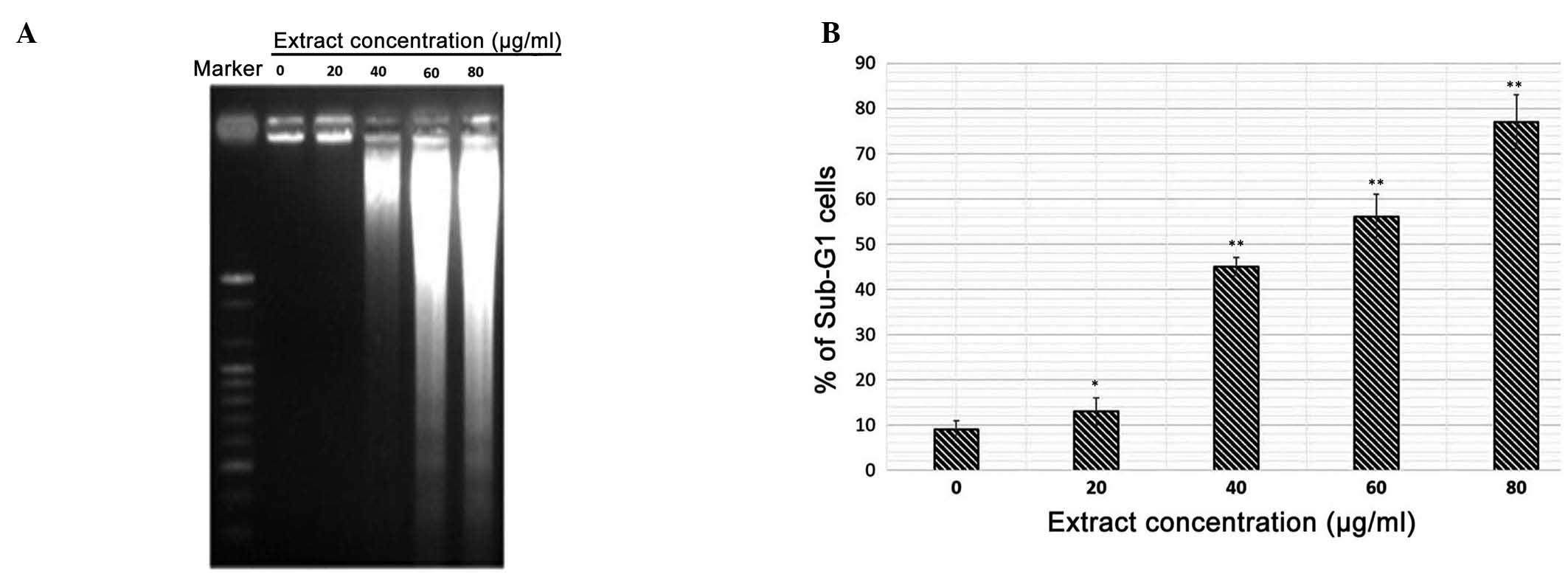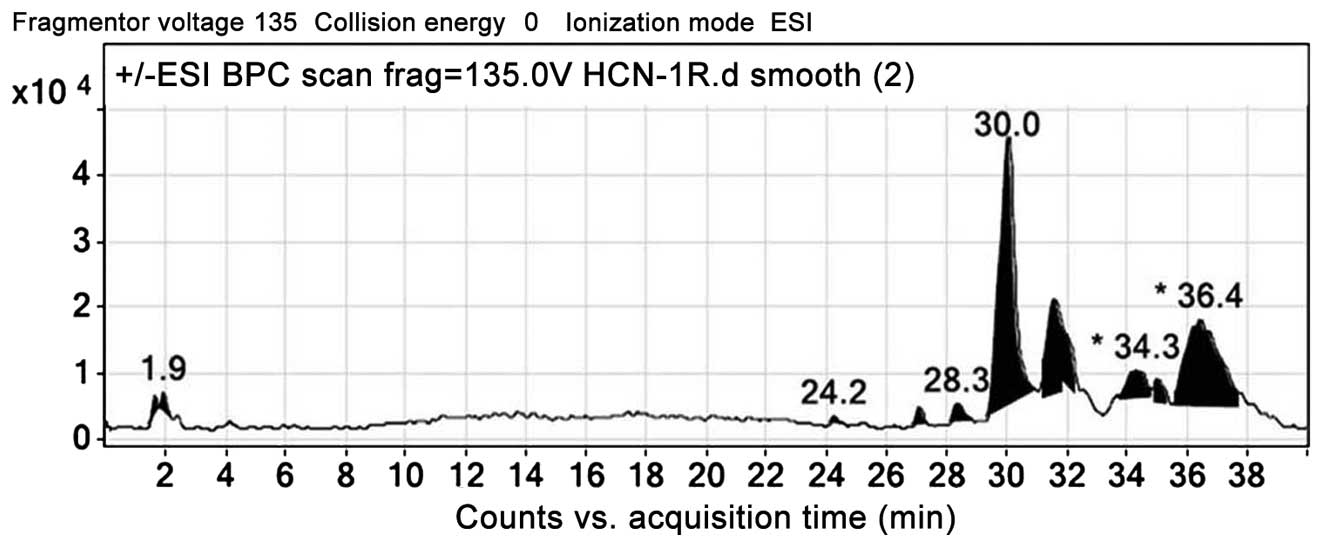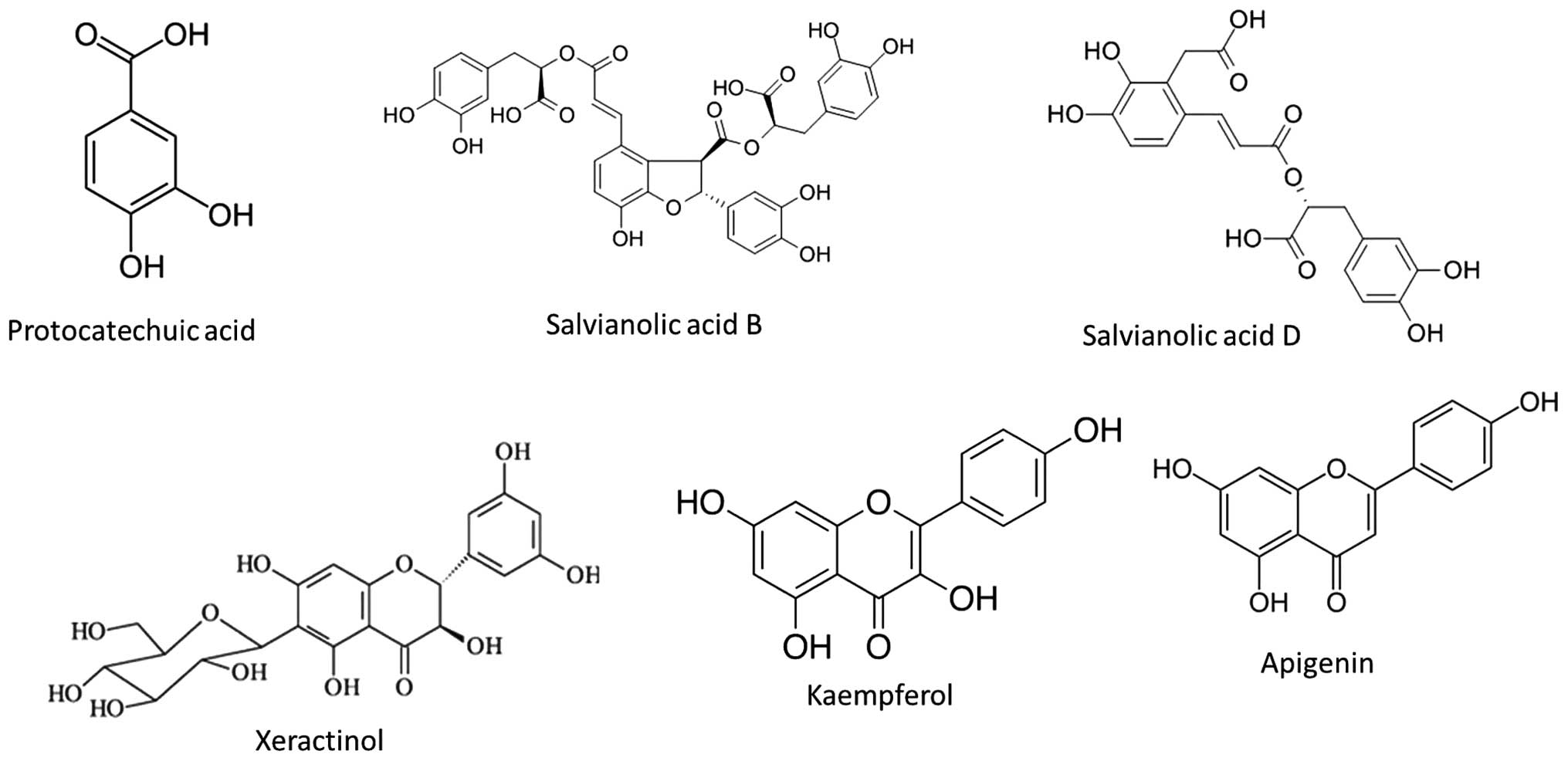|
1
|
Murr MM, Sarr MG, Oishi AJ and van Heerden
JA: Pancreatic cancer. CA Cancer J Clin. 44:304–318. 1994.
View Article : Google Scholar : PubMed/NCBI
|
|
2
|
Burris HA III, Moore MJ, Andersen J, et
al: Improvements in survival and clinical benefit with gemcitabine
as first-line therapy for patients with advanced pancreas cancer: A
randomized trial. J Clin Oncol. 15:2403–2413. 1997.PubMed/NCBI
|
|
3
|
Sener SF, Fremgen A, Menck HR and
Winchester DP: Pancreatic cancer: A report of treatment and
survival trends for 100,313 patients diagnosed from 1985–1995 using
the National Cancer Database. J Am Coll Surg. 189:1–7. 1999.
View Article : Google Scholar : PubMed/NCBI
|
|
4
|
Orr RK: Outcomes in pancreatic cancer
surgery. Surg Clin North Am. 90:219–234. 2010. View Article : Google Scholar : PubMed/NCBI
|
|
5
|
Jemal A, Siegel R, Ward E, Hao Y, Xu J and
Thun MJ: Cancer statistics, 2009. CA Cancer J Clin. 59:225–249.
2009. View Article : Google Scholar : PubMed/NCBI
|
|
6
|
Stathis A and Moore MJ: Advanced
pancreatic carcinoma: Current treatment and future challenges. Nat
Rev Clin Oncol. 7:163–172. 2010. View Article : Google Scholar : PubMed/NCBI
|
|
7
|
Schneider G, Siveke JT, Eckel F and Schmid
RM: Pancreatic cancer: Basic and clinical aspects.
Gastroenterology. 128:1606–1625. 2005. View Article : Google Scholar : PubMed/NCBI
|
|
8
|
Gudjonsson B: Pancreatic cancer: Survival,
errors and evidence. Eur J Gastroenterol Hepatol. 21:1379–1382.
2009. View Article : Google Scholar : PubMed/NCBI
|
|
9
|
Lockhart AC, Rothenberg ML and Berlin JD:
Treatment for pancreatic cancer: Current therapy and continued
progress. Gastroenterology. 128:1642–1654. 2005. View Article : Google Scholar : PubMed/NCBI
|
|
10
|
Oettle H, Post S, Neuhaus P, et al:
Adjuvant chemotherapy with gemcitabine vs observation in patients
undergoing curative-intent resection of pancreatic cancer: A
randomized controlled trial. JAMA. 297:267–277. 2007. View Article : Google Scholar : PubMed/NCBI
|
|
11
|
Rivera F, López-Tarruella S, Vega-Villegas
ME and Salcedo M: Treatment of advanced pancreatic cancer: From
gemcitabine single agent to combinations and targeted therapy.
Cancer Treat Rev. 35:335–339. 2009. View Article : Google Scholar : PubMed/NCBI
|
|
12
|
Indran IR, Tufo G, Pervaiz S and Brenner
C: Recent advances in apoptosis, mitochondria and drug resistance
in cancer cells. Biochim Biophys Acta. 1807:735–745. 2011.
View Article : Google Scholar : PubMed/NCBI
|
|
13
|
Wong HH and Lemoine NR: Pancreatic cancer:
Molecular pathogenesis and new therapeutic targets. Nat Rev
Gastroenterol Hepatol. 6:412–422. 2009. View Article : Google Scholar : PubMed/NCBI
|
|
14
|
Fulda S: Apoptosis pathways and their
therapeutic exploitation in pancreatic cancer. J Cell Mol Med.
13:1221–1227. 2009. View Article : Google Scholar : PubMed/NCBI
|
|
15
|
Fulda S: Tumor resistance to apoptosis.
Int J Cancer. 124:511–515. 2009. View Article : Google Scholar
|
|
16
|
Chen L, Qi X, Wang Y, Zhang L, Guo Z, Lin
J, Song Y and Zhong M: Identification of Schisandra sphenanthera
and S. chinensis by random amplified polymorphic DNA sequence
characterized applied region. Zhongguo Zhong Yao Za Zhi.
36:3083–3085. 2011.In Chinese.
|
|
17
|
Wang YL, Song DD, Li ZL, et al:
Triterpenoids isolated from the aerial parts of Salvia chinensis.
Phytochem Lett. 2:81–84. 2009. View Article : Google Scholar
|
|
18
|
Jiangsu New and Medical College:
Dictionary of Chinese Materia Medica. Shanghai Science and
Technology Press; Shanghai: pp. 597–598. 1995
|
|
19
|
Venkanna A, Siva B, Poornima B, Vadaparthi
PR, Prasad KR, Reddy KA, Reddy GB and Babu KS: Phytochemical
investigation of sesquiterpenes from the fruits of Schisandra
chinensis and their cytotoxic activity. Fitoterapia. 95:102–108.
2014. View Article : Google Scholar : PubMed/NCBI
|
|
20
|
Xu MJ, Lin YL and Shi JC: Study on
chemical constituents from Salvia chinensis. Chin Herb Med.
18:461987.
|
|
21
|
Wang Y, Li Z, Zhang H, Sha Y, Pei Y and
Hua H: New germacrane sesquiterpenes from Salvia chinensis. Chem
Pharm Bull (Tokyo). 56:843–846. 2008. View Article : Google Scholar
|
|
22
|
Wang YL, Song DD, Li ZL, et al:
Triterpenoids isolated from the aerial parts of Salvia chinensis.
Phytochem Lett. 2:81–84. 2009. View Article : Google Scholar
|
|
23
|
Qian TX and Li LN: Isosalvianolic acid C,
a depside possessing a dibenzooxepin skeleton. Phytochem.
31:1068–1070. 1992. View Article : Google Scholar
|
|
24
|
Li MH, Chen JM, Peng Y and Xiao PG:
Distribution of phenolic acids in Chinese Salvia plants. World Sci
Technol Mod Tradit Chin Med. 10:46–52. 2008.
|
|
25
|
Kang C, Li ML, Wang Q, Huang LQ, Franco FV
and Anna RB: Studies on water-soluble substances and determination
of Danshensu and protocatechualdehyde of Herba Salvia chinensis.
Chin J Exp Tradit Med Form. 15:1–3. 2009.
|
|
26
|
Liu HX, Sui HW and Xiang MX: Study on
chemical constituents of acetic acid parts from Salvia chinensis.
Chin J Hosp Pharm. 30:1657–1660. 2010.
|
|
27
|
Liu HX, Sui HW and Xiang MX: Analysis of
the content of protocatechuic acid from Salvia chinensis. Lishizhen
Med Mater Med Res. 22:131–132. 2011.
|
|
28
|
Yuan X, Chen GX, Li WX and Peng YM:
Studies on the effects of Salvia chinensis on human gastric cancer
cells and nasopharyngeal carcinoma cells invitro. Cancer Res Prev
Treat. 16:7–9. 1989.
|
|
29
|
Zheng HY, Xu W, Zheng XY and Tang XZ:
Salvia chinensis polysaccharide extract and of liver cancer cell
proliferation inhibitory effect. Chin J Tradit Med Sci Technol.
15:360–362. 2008.
|
|
30
|
Liu CP, Fang JN, Li XY and Xiao XQ:
Structural characterization and biological activities of SC4, an
acidic polysaccharide from Salvia chinensis. Acta Pharmacol Sin.
23:162–166. 2002.PubMed/NCBI
|
|
31
|
Liu CP, Wang XS and Fang JN: Chemical
study on two acidic polysaccharide from Salvia chinensis. Chin Herb
Med. 35:8–12. 2004.
|
|
32
|
Liu CP, Wang XS and Fang JN: Chemical
studies on SC3, a poly-saccharide from Salvia chinensis. Yao Xue
Xue Bao. 37:189–193. 2002.In Chinese.
|
|
33
|
Chen P, Cui YR, Li DF and Zheng QS:
Hepatoprotective effects of phenolic acid from Salvia chinensis
Benth. On carbon tetrachloride induced acute liver injury in mice.
J Anhui Agric Sci. 38:4607–4609. 2010.
|
|
34
|
van Engeland M, Ramaekers FC, Schutte B
and Reutelingsperger CP: A novel assay to measure loss of plasma
membrane asymmetry during apoptosis of adherent cells in culture.
Cytometry. 24:131–139. 1996. View Article : Google Scholar : PubMed/NCBI
|
|
35
|
Elmore S: Apoptosis: A review of
programmed cell death. Toxicol Pathol. 35:495–516. 2007. View Article : Google Scholar : PubMed/NCBI
|
|
36
|
Webster KA: Mitochondrial membrane
permeabilization and cell death during myocardial infarction: Roles
of calcium and reactive oxygen species. Future Cardiol. 8:863–884.
2012. View Article : Google Scholar : PubMed/NCBI
|
|
37
|
Jin Z and El-Deiry WS: Overview of cell
death signaling pathways. Cancer Biol Ther. 4:139–163. 2005.
View Article : Google Scholar : PubMed/NCBI
|
|
38
|
Kroemer G and Reed JC: Mitochondrial
control of cell death. Nat Med. 6:513–519. 2000. View Article : Google Scholar : PubMed/NCBI
|
|
39
|
Kutuk O and Letai A: Regulation of Bcl-2
family proteins by posttranslational modifications. Curr Mol Med.
8:102–118. 2008. View Article : Google Scholar : PubMed/NCBI
|
|
40
|
Slee EA, Harte MT, Kluck RM, et al:
Ordering the cytochrome c-initiated caspase cascade: Hierarchical
activation of caspases-2, -3, -6, -7, -8, and -10 in a
caspase-9-dependent manner. J Cell Biol. 144:281–292. 1999.
View Article : Google Scholar : PubMed/NCBI
|
|
41
|
García-Sáez AJ: The secrets of the Bcl-2
family. Cell Death Differ. 19:1733–1740. 2012. View Article : Google Scholar : PubMed/NCBI
|















